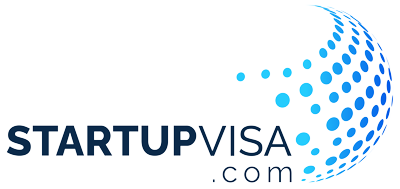The Start-up Visa Program aims to attract immigrant entrepreneurs who are willing to move to Canada and have the potential to create jobs and offer innovative products and services. Applicants under the program are free to settle in any province in Canada, except for Quebec.
Benefits for Entrepreneurs
There are plenty of benefits for immigrant entrepreneurs in light of the fact that Canada has a strong, stable, and competitive economy. This means that businesses benefit from low operational costs and taxes, low corporate taxes, and an educated and highly skilled workforce.
Eligibility Criteria
There are certain eligibility criteria to meet to qualify under the Start-up Visa program. Applicants are asked to show proof of support of a designated business incubator, angel investor group, venture capital fund, or another organization. Examples of designated angel investor groups include TenX Angel Investors, Oak Mason Investors, and Angel One Network. The list of designated venture capital funds includes organizations such as Westcap Mgt., Version One Ventures, Golden Opportunities Fund, and others. Finally, there are designated business incubators such as the Waterloo Accelerator Centre, Genesis Centre, and Extreme Innovations, among others. To qualify, applicants are asked to show a letter of support. Those who meet the ownership criteria qualify under the Start-up Visa Program. This means that more than 50 percent of the voting rights are jointly held by the business and designated incubator, angel investor group, or venture capital fund. Applicants with 10 percent of the voting rights meet the eligibility criteria. The minimum investment depends on the source, whether it is a business incubator (none), angel investor group ($75,000), or venture capital fund ($200,000). Finally, there are language requirements as well. CLB 5 in French or English is required in areas such as writing, listening, reading, and speaking.
Applicants must pass all medical and security clearances to settle in Canada. All immigrants are required to pass background clearance, and those with a criminal record do not qualify. This is because they are regarded as a threat to internal security. U.S. citizens and residents are asked to present a FBI Police Clearance as well as a State Police Clearance Certificate. Applicants for permanent residence are also asked to contact a panel physician and pass a medical exam. In some cases panel physicians recommend laboratory tests and x-rays. All applicants are asked to bring certain documents, including a Medical Report Form and an ID card, driver’s license, or passport. Those who have existing medical conditions must bring relevant test results and medical reports.
Eligibility and Financial Criteria
Obviously, it is important to bring enough money, and the amount varies depending on the number of family members. Thus, the amount required for 7 family members is $33,014 while the amount for 3 family members is $19,093. A family of 4 must have a total of $23,181. Applicants who plan to bring more than $10,000 must inform the authorities upon arrival, whether bringing travellers’ cheques, cheques, bankers’ drafts, or cash. The same goes for treasury bills, debentures, bonds, stocks, and other securities. In some countries, there is a limit on the amount of money citizens can take abroad. It pays to ask a finance advisor, bank representative, or lawyer. Applicants who plan to move to Canada as self-employed persons or skilled workers are asked to show proof of funds.
It is also a good idea to take household and daily expenses into account. Household expenses include things like mortgage or rent, utility bills, gas or public transportation, health insurance, food, and so on. The standard of living in the applicant’s home country is often different than in Canada.
